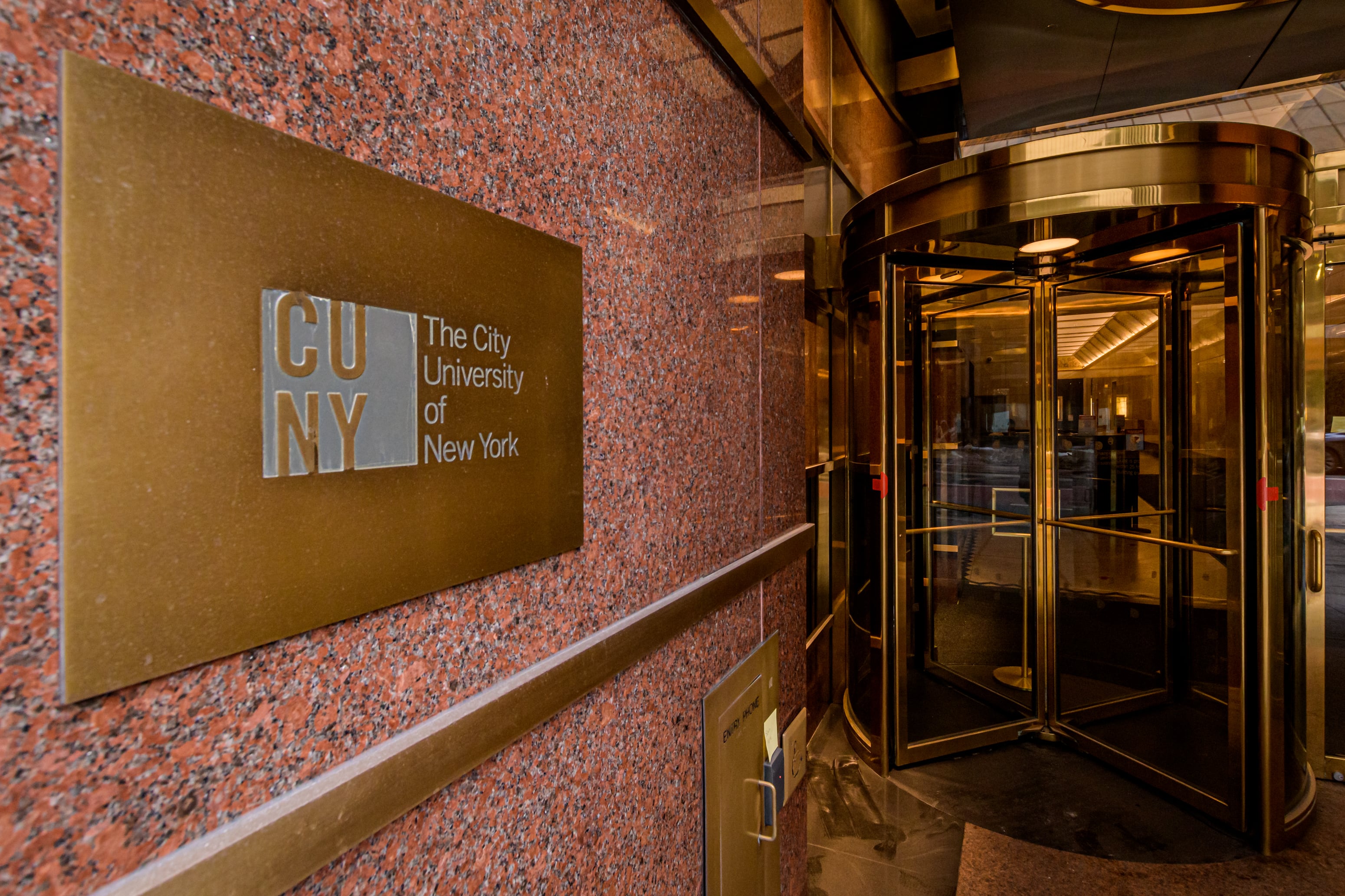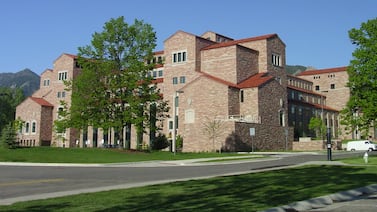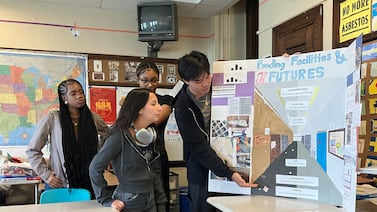Sign up for Chalkbeat New York’s free daily newsletter to keep up with NYC’s public schools.
An effort to bolster enrollment numbers at the City University of New York is seeing early signs of success, as the number of prospective students applying to schools in the system more than quadrupled last month.
Applications for the fall 2024 semester reached nearly 41,000 in October — a roughly 386% jump from the same time last year, when 8,420 students had applied, CUNY officials said last week.
Of those, more than 34,000 applications — or roughly 83% — came from New York City public school students.
The figures come as both city and state officials have worked to increase enrollment in the city’s network of public colleges, which saw dramatic downturns in student numbers during the pandemic, like many institutions across the country.
Systemwide, the number of enrolled students at CUNY schools fell about 17% over the course of the pandemic, with even steeper losses at the network’s community colleges. Overall, the number of students dropped from roughly 271,000 in the 2019-20 school year to about 226,000 last school year, though preliminary enrollment data shared last month indicated that decline had begun to level off.
To combat those trends, officials sent each senior expected to graduate from one of the city’s public high schools a personalized acceptance letter indicating they had a spot at CUNY and encouraging them to apply.
CUNY’s community colleges have open admissions for high school graduates, and the letters aimed to motivate those on the fence about applying to the network’s schools.
The college system also waived application fees for all NYC public school students for the entirety of October, while eliminating the cost for other high school seniors in the state between Oct. 16 and Oct. 31. The personalized letters included information about the fee waivers, which were also promoted via social media and an ad campaign, officials added.
About 88% of applicants during October received a fee waiver, up from about 52% at the same time last year, officials said.
It isn’t the first time the city’s network of public colleges has waived application fees for local students, but this year, the move came much earlier in the application process.
Schools Chancellor David Banks said he was “thrilled” by the application figures.
“The dramatic increase in applications tells us that our students heard the message: higher education is within their reach, and we have a place for them at our city’s university,” he said in a statement. “We look forward to seeing the impact of a CUNY education on the long-term outcomes for both our students and our city.”
CUNY application spike ‘an outlier,’ expert says
Though college applications have risen across the country this year, CUNY’s October jump in applicants was “enormous, and absolutely an outlier,” said Joshua Hyman, an economics professor at Amherst College who has studied higher education.
The two policy changes at CUNY appeared to complement one another, potentially amplifying the impact that either could have on their own, he said.
“The massive outreach in the letters by themselves would have had some impact,” Hyman said. “But there would have been those students who would have been excited about this, but for whom the application fee is a real barrier.”
And even among those who can afford them, fees can discourage potential applicants, said Philip Oreopoulos, an economics professor at the University of Toronto.
“Even a small fee, where you have to whip out your credit card or you have to get your parents to do that, can cause delays, can cause like, ‘Oh, I’m going to do this later,’ and then it just never happens,” he said.
Applications were up last month even when compared to pre-pandemic figures, with the network receiving roughly 18,000 applicants as of the same time in 2018 and 2019, according to officials.
Any efforts to streamlining the application process can have significant impacts.
“When you make the process of applying easier, it can make the difference between someone going and not going,” Oreopoulos said.
Still, Hyman added, “There’s a big difference between applying and then ultimately enrolling.”
Though he expects to see enrollment increase next year after the spike in applications, Hyman said any growth would likely occur at a smaller scale.
Affordability can be major draw on whether to enroll
For students deciding whether to enroll in the network’s colleges, affordability can be a major draw.
Tuition at CUNY costs about $3,500 a semester for state residents at four-year colleges and $2,400 a semester for New Yorkers at community colleges, though roughly two-thirds of in-state students pay no tuition because of a combination of state and federal financial aid, according to the university.
Among graduates, 75% leave with no debt, officials said. CUNY forgave roughly $100 million in debt accrued during the pandemic.
With more students potentially enrolling next year, experts said it’s critical to ensure new students receive the support they need. Across the country, colleges saw more students dropping out since the onset of the pandemic, and traditionally disadvantaged students who may have been swayed to apply by CUNY’s outreach efforts could be at especially high risk.
Oreopoulos pointed to CUNY’s Accelerated Study in Associate Programs initiative as one example of strong support systems. The program offers additional financial resources, academic structure, and direct support services to students seeking associate degrees within the network — aiming to help them graduate on time.
“It’s nice to see that CUNY is doing this combination of not only trying to help more get in, but also help more stay,” he said.
Julian Shen-Berro is a reporter covering New York City. Contact him at jshen-berro@chalkbeat.org.





